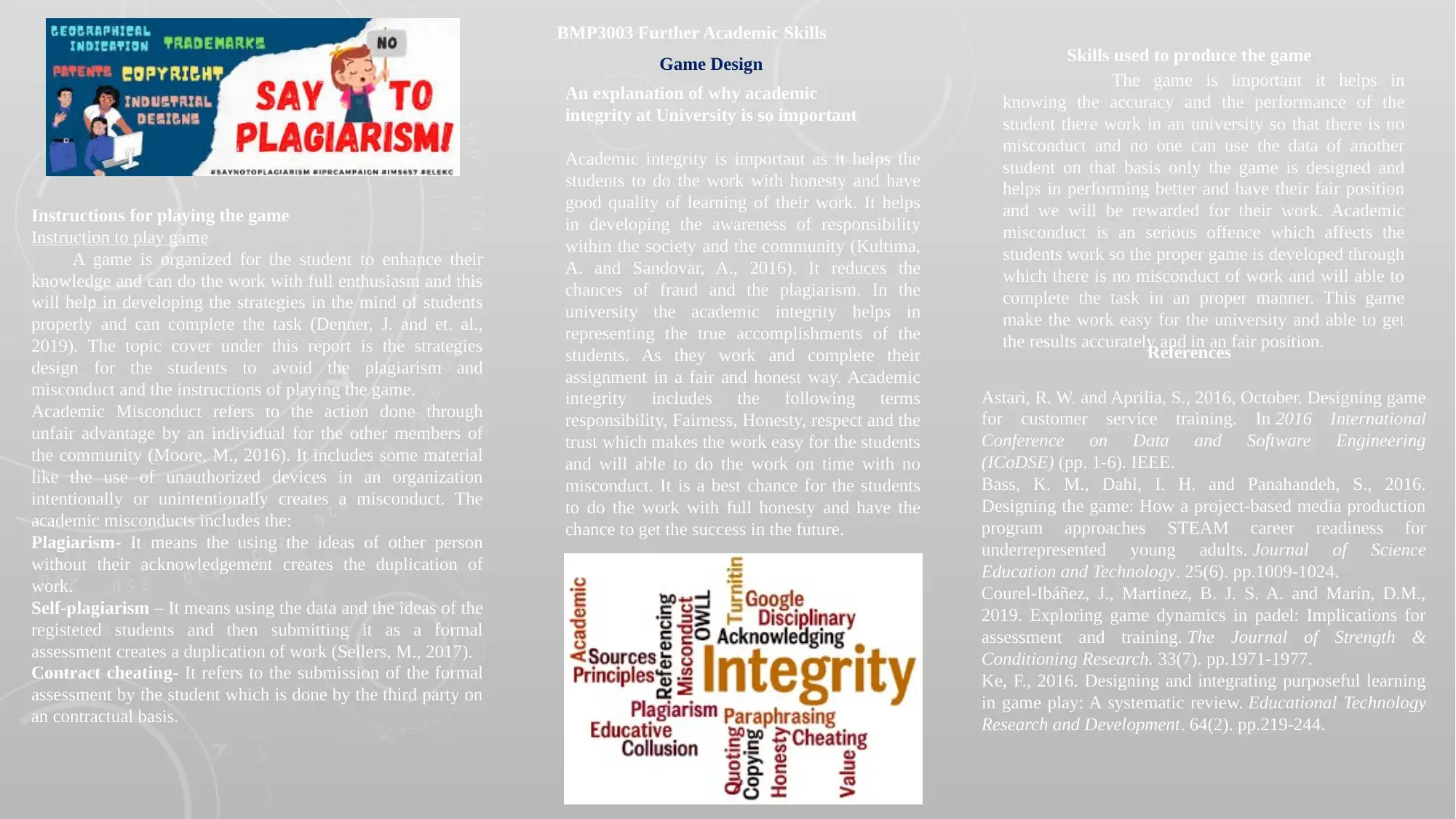University Project: BMP3003 Further Academic Skills - Game Design
VerifiedAdded on 2022/12/26
|1
|688
|25
Project
AI Summary
This assignment focuses on designing a game to educate students on the importance of academic integrity and strategies to avoid plagiarism and misconduct. The project emphasizes the significance of honesty, fairness, respect, and trust within the academic environment. It covers the definitions of academic misconduct, including plagiarism, self-plagiarism, and contract cheating. The game is designed to enhance students' understanding of ethical practices, promote responsible behavior, and reduce the likelihood of academic dishonesty. The solution highlights the role of academic integrity in representing students' true accomplishments and fostering a culture of accountability. The project also provides a list of references that support the concepts presented. By engaging with this game, students can improve their knowledge and enthusiasm and develop strategies for completing tasks ethically.






![[object Object]](/_next/static/media/star-bottom.7253800d.svg)